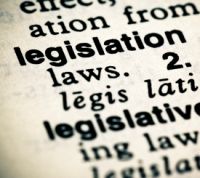

The Government has published the Business and Planning Act 2020 which contains a range of measures aimed at helping businesses and the economy recover from the impact that the Covid-19 pandemic has had.
The provisions of the Act address different business sectors as well as the planning process, introducing both temporary and permanent changes to legislation which will hopefully make things easier for businesses and the economy to transition from the period of lockdown to recovery.
Background
When lockdown measures were introduced in March 2020 in a bid to tackle and slow down the spread of Covid-19, many businesses had to cease trading. This period will have had an obvious and significant impact on businesses across the UK, all of which now face the strange prospect of re-opening their doors and beginning trade once more in a very different world.
The recovery will, therefore, be difficult without additional support.
That is where this Act aims to help. It removes some short term obstacles for some business sectors, albeit temporarily, to help them bounce back more quickly following lockdown. Some of the measures of the Act are described below.
Changes to the planning system
The planning system has faced its own challenges during lockdown but has continued to operate throughout this period to try and support the economy and construction.
However, to ensure the system in England continues to operate effectively and that planning continues to support the construction sector and the economy, the Act introduces several new temporary measures, including:
For more information on this subject refer to our: